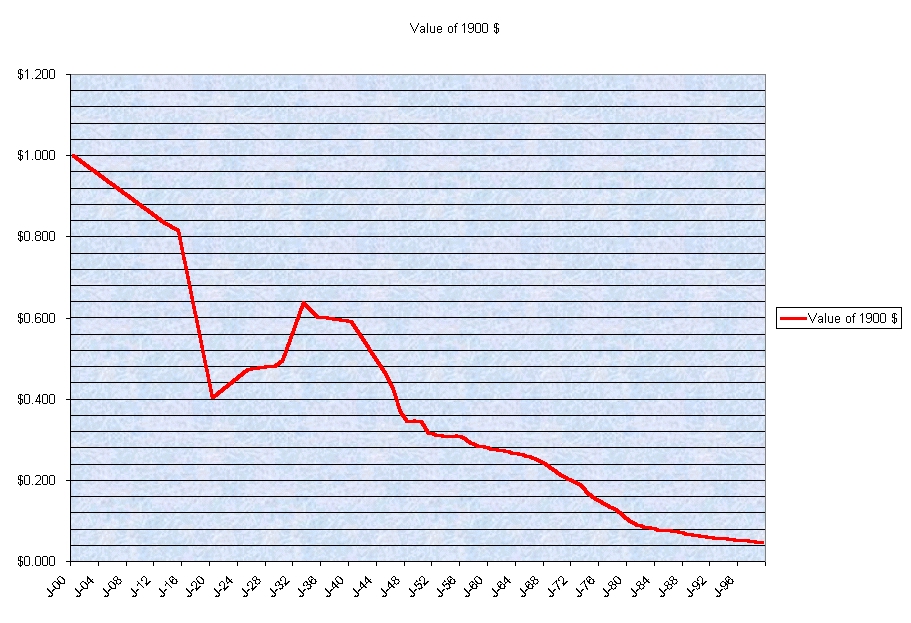 |
| Today's dollar is not worth a plugged nickel in value as compared to the 1900 Silver Dollar. |
Um, how do we break this to you Team USA: You didn't actually win gold

Dominic Ebenbichler / Reuters
Venus and Serena Williams of the U.S. hold their gold medals during the presentation ceremony for the women's doubles tennis.
By Bill Briggs, NBC News contributor
Today and tonight, during final-event leaps, heaves and sprints in the hurdles, pole vault, and gym, athletes will be competing for, living and dying for ... silver.
Not second place, mind you. But, technically, as the winners' national anthems ring out this evening, each grinning champion will be wearing, nuzzling or even kissing carefully dressed-up medallions made almost completely out of sterling silver.
Those cherished, sacrifice-four-years-of-your-life-to-achieve, historic golds? Oh, there's gold on there -- as a thin plating meant to cloak the 92.5 percent of the first-place prize that's comprised of silver.
London 2012 organizers have proudly, purposely produced the heaviest gold meals in Olympic history -- each tipping the scales at 400 grams, or twice the heft of the golds handed out during the 2008 Beijing Games. But they are hardly the most valuable Olympic medals ever.
Due to that flashy gold coating, totaling 6 grams -- worth $302 in today's market -- and the remaining 394 grams of sterling silver -- valued at $318 -- the winning coins would fetch about $620 if melted down as pure metals, according to Lear Capital, a precious metals company in Los Angeles.
It's true: the London golds aren't worth their weight in gold.
"The London (organizers), they made this coin larger than any other Olympics ever have. But you can make a gold coin fairly large if you’re just going to plate whatever’s underneath it with gold," said Kevin DeMeritt, founder of Lear Capital. "So it’s a beautiful coin .... But most of the coin is silver which really doesn’t add up to a whole lot when silver is $26 an ounce and gold is $1,600 an ounce."
Lear has crunched the metal/medal math, comparing the London golds with the top prizes doled out at Barcelona in 1992 (which would be worth $484 today), at Stockholm in 1912, the last Games during which gold medals were all-gold ($1,207 today) and at Paris in 1900 ($2,667 today).
Now, don't feel a bit bad for athletes like Michael Phelps, who owns 18 career golds, or for the collective 2012 American team which together has scooped up 28 top medals as of Monday morning.
For starters, most of those hard-fought keepsakes will continue to gain value as sports collectables, should any ever choose to sell them. U.S. Olympic hockey player Mark Wells, a member of the famous 1980 squad, earned $310,700 for his gold medal when it was auctioned two years ago.
Along with their neck-worn medals, American Olympians also earn honorariums from the U.S. Olympic Committee to reward their achievements: $25,000 for gold, $15,000 for silver and $10,000 for bronze. And there's now a bill, introduced by Sen. Marco Rubio R-Fla., to waive the taxes that Olympic athletes must pay on those gratuities.
All the compensation and potential tax-cuts aside, each London gold medal still remains worth about a third as much as an autographed pair of LeBron James' kicks, $1,729.
And in future games, those top medals may become even less precious, DeMeritt predicted.
Take, for example, the Russians, hosts of the 2014 Winter Olympics.
"Who knows?" DeMeritt said. "Maybe they'll just use copper (worth $3.35 a pound) and then plate it with gold."
Source: Um, how do we break this to you Team USA: You didn't actually win gold